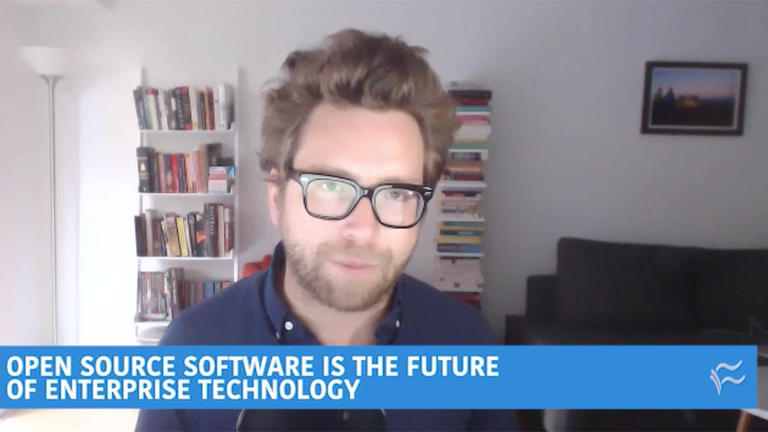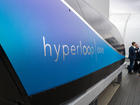Only Donald Trump may use Twitter to more incendiary effect than Tesla CEO Elon Musk, but when he's not chatting about taking Tesla private (funding secured!), Musk is revealing plans to open source critical security code.
While some have characterized this move as self-serving, a way to make Tesla "look good from a marketing standpoint," this completely misses the point. While some have used open source as a vapid marketing gesture, Musk's move here would have far deeper significance for the industry and, of course, for Tesla.
Open source and self interest
To critique Musk's plans to open source Tesla's security software ("Planning to open-source Tesla vehicle security software for free use by other car makers. Extremely important to a safe self-driving future for all") because it isn't "a selfless gesture," as some do, is to completely misunderstand open source. Every contribution is, at its heart, an act of self-interest, and particularly so when speaking of corporate contributions. It always has been.
Microsoft is the no. 1 contributor to open source, with 3,674 employees active on GitHub, and not because the company has reorganized as a non-profit and wants everyone to hold hands and stage a love-in. No, the reason Microsoft loves open source is that it's a platform company, and open source is a way to make its platform appealing and approachable to third-party developers.
SEE: IT leader's guide to the future of autonomous vehicles (Tech Pro Research)
Google, for its part, is the second-largest corporate contributor on GitHub, with roughly 1,850 employees actively contributing. More interestingly, Google has launched industry standards for container orchestration (Kubernetes) and machine learning (TensorFlow). Google benefits from that standardization around code friendly to its cloud, but it benefits even more from companies discovering they can run related workloads more productively on Google Cloud Platform. It's open source genius.
I could go on, but the point is that open source is always in someone's self-interest. We therefore shouldn't deprecate Musk's potential contribution simply because Tesla benefits from it. Instead, we should be clear on exactly what kind of benefit Tesla can expect.
Hint: It's not about marketing.
Outsourcing maintenance
Security isn't new, but securing the systems powering autonomous vehicles largely is. As such, it's likely that Tesla's vehicle security software won't be a retread of other security projects, though open source being open source, it may well borrow from them. The great thing about this code, then, is that it may introduce new innovations in security.
That's also the headache, particularly if you're Tesla.
SEE: Our autonomous future: How driverless cars will be the first robots we learn to trust (cover story PDF) (TechRepublic)
Why? Well, when I asked Li Luo, technical director of big data at Didi (the Uber of China), how the company chooses to get involved in open source without getting mowed down by its furious pace of innovation, he flipped my question on its head:
Most of the time, we don't have to keep up with the pace of [open source] innovation, since in the projects we use we'll often also be leading contributors of that innovation because of our specific requirements. So we don't have to worry about open source projects being displaced by new ones. Our job is to solve the business problems of our company and open source allows us to solve those problems more efficiently. That's why we use it.
By pushing those innovations into open source projects, Didi effectively shares the wealth of its innovations and the burden of maintaining them.
In a similar manner, Tesla's open source security project can both help to push the boundaries of innovation while ensuring that it needn't solely support it. For a company that is trying to build the maximum number of cars at the minimum cost, "outsourcing" some of its key software development is brilliant. Self-interested? Yep. But self-interested in a way that benefits itself by helping others. That's the power of open source, and Musk should be lauded for this move.
Also see
- Tesla's Autopilot: Cheat sheet (TechRepublic)
- Tesla's August 'full self-driving feature' highlights how software updates define industries (TechRepublic)
- Report suggests car system failures in deadly Tesla Model X crash (ZDNet)
- Tesla's Autopilot: A cheat sheet (TechRepublic)
- Musk's promise of Tesla's 'full self-driving' features leaves plenty of questions (CNET)
- Are self-driving shuttles the work perk of the future? (TechRepublic)
- The 5 best transit apps to get you there on time (Download.com)

Disclosure
Matt is currently head of the developer ecosystem at Adobe. The views expressed are his own, not those of his employer.
Full Bio
Matt Asay is a veteran technology columnist who has written for CNET, ReadWrite, and other tech media. Asay has also held a variety of executive roles with leading mobile and big data software companies.






